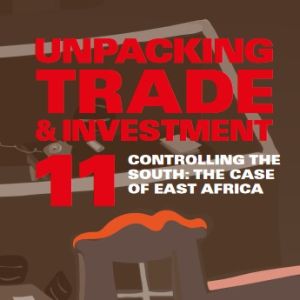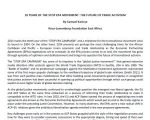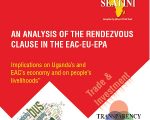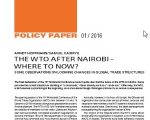Controlling the South: the case of East Africa | Written by Yash Tandon | Published by RLS Brussels Office | February 2017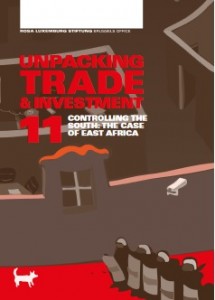
This paper falls within the overall theme of mega-regional trade and investment agreements that have proliferated in recent years. It addresses the question of whether they are improving or worsening the condition of countries in the Global South. The paper’s main thesis is that the strategic elements of mega trade agreements are more critical than the economic, and that Transatlantic Trade and Investment Partnership (TTIP), Trans – Pacific Partnership (TPP) and Economic Partnership Agreements (EPAs) are an attempt to create a new trading, investment and legal structure to exclude BRICS, particularly China. The objective is more military-security than economic, although, significantly, the latter is also targeted. Against this background, the paper examines the impact of mega trade agreements on value generation, taking the East African region as a case study. The paper reveals the unbalanced bargaining powers between the countries of the Global North and the Global South. Therefore, one solution for regional blocs like East African Community - besides additional steps of resistance – are deeper regional integration efforts and partial de-coupling from globalization.
"Unpacking Trade and Investment" is a series of 11 fact booklets about global trade policies recently released by RLS Brussels Office. The series of 11 fact-leaflets explains the dangers of the current trade and investment agreements. They are focusing on topics like the 21st century trade and investment regime which is the ideologic umbrella for agreements like the Transatlantic Trade and Investment Partnership (TTIP) or the Transpacific Partnership (TPP), describing differences and similarities between the different agreements, analysing the impact of trade and investment agreements on the Global South and exposing the current state of the WTO negotiations with its failures leading to more global inequality.
For downloading all fact-leaflets visit the homepage of the RLS Brussels office

